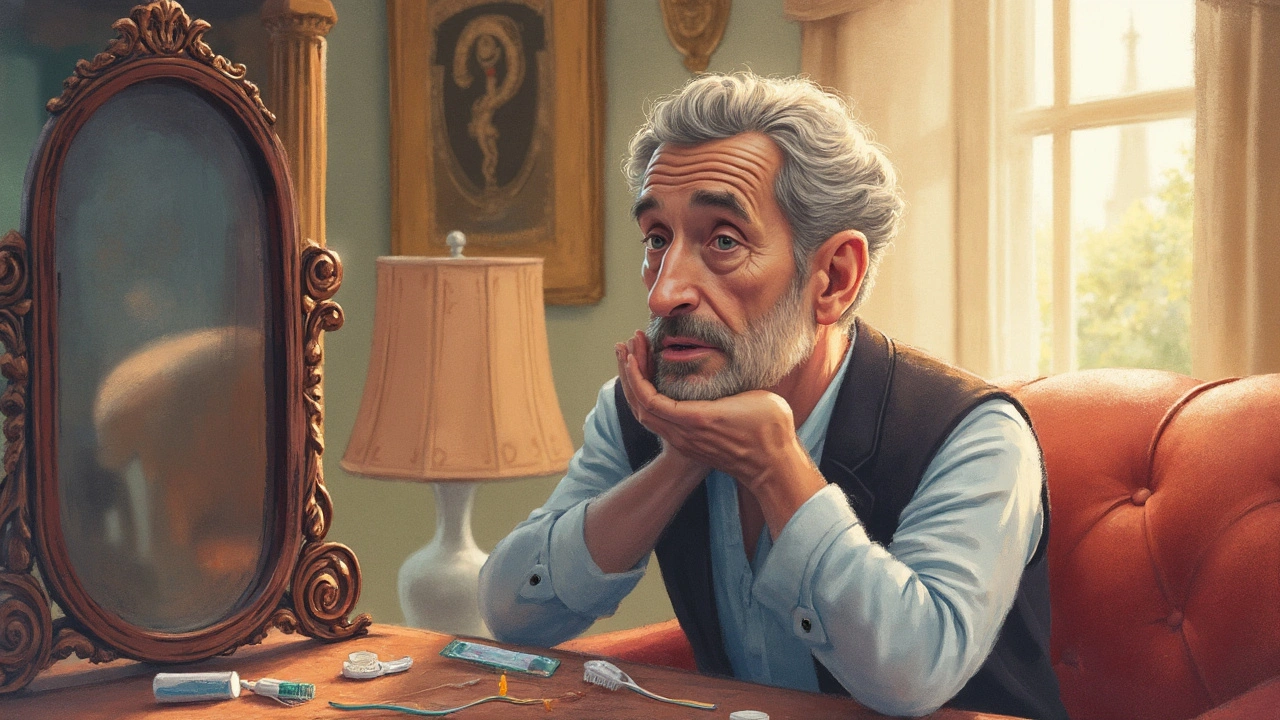Teeth Grinding (Bruxism): What to Do Now
Do you wake with a sore jaw or get told you grind your teeth at night? Teeth grinding — called bruxism — wears enamel, causes headaches, and chips teeth if you ignore it. The good news: many fixes are simple and start at home. Read on for clear, practical steps you can try tonight.
Common causes and warning signs
Bruxism shows up as jaw pain, morning headaches, flattened or cracked teeth, and sensitive enamel. Your partner may hear a grinding sound while you sleep. Causes are usually a mix: stress and anxiety, poor sleep, caffeine or alcohol late in the day, and some meds. For example, certain antidepressants (including venlafaxine/Effexor in some people) can make jaw clenching worse. Sleep apnea also often coexists with grinding, so tell your dentist if you snore or have gasping episodes.
If you notice tooth wear, a loose filling, or constant jaw tension, don’t wait. Early fixes protect your teeth and stop pain from getting worse.
Practical treatments you can try today
Start with low-effort changes. Cut back on caffeine and alcohol in the evening. Stop chewing gum and hard candies — constant chewing trains the jaw to clench. Improve sleep habits: regular bedtimes, a cool dark room, and avoiding screens 30–60 minutes before sleep help reduce nighttime tension.
For immediate jaw relief, use a warm compress and gentle jaw stretches: open your mouth slowly, move it side to side, and hold a relaxed position for 10–15 seconds. Over-the-counter pain relievers can help short-term, but don’t use them as a long-term fix.
Night guards are the most common dental solution. A boil-and-bite guard from the drugstore is cheap and can help short-term. A custom splint from your dentist fits better and protects teeth more effectively, especially if grinding is heavy. If you have sleep apnea or snore, your dentist may recommend a sleep study or a different appliance.
If stress triggers your grinding, try simple relaxation: 10 minutes of breathing, progressive muscle relaxation, or short guided meditations before bed. For persistent anxiety, cognitive behavioral therapy (CBT) has a solid track record for lowering stress and related jaw clenching.
For severe cases where other steps fail, dentists or doctors may discuss Botox injections to relax jaw muscles, or medication changes if a drug is the culprit. These are options to consider with your provider, not DIY fixes.
When should you see a professional? Book a dentist visit if you have chipped teeth, constant jaw pain, or regular morning headaches. See your doctor if you suspect a medication is causing clenching or if you snore loudly and feel tired during the day — that could point to sleep apnea.
Bruxism is common and manageable. Small habits plus the right dental help will protect your smile and stop the pain. If you’re unsure where to start, a quick dentist check-up will set a clear plan.
